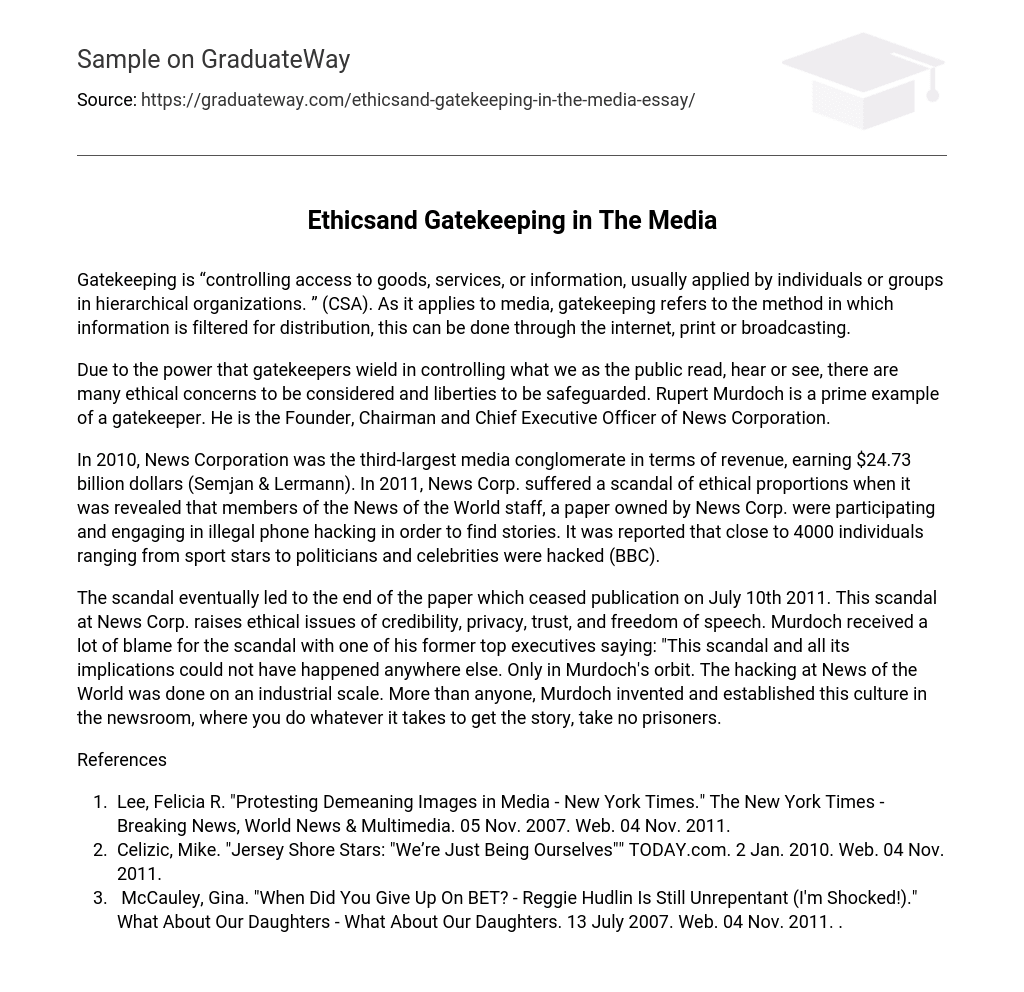Gatekeeping in hierarchical organizations is the act of individuals or groups controlling the accessibility to goods, services, or information (CSA). In media, gatekeeping refers to the process of filtering information for distribution via various channels such as the internet, print media, or broadcasting.
The significant influence of gatekeepers, like Rupert Murdoch who is the Founder, Chairman, and Chief Executive Officer of News Corporation, plays a crucial role in deciding the availability of public information. This authority brings up ethical considerations and emphasizes the need to safeguard specific freedoms.
In 2010, News Corporation generated a revenue of $24.73 billion, making it the third-largest media conglomerate (Semjan & Lermann). However, the next year witnessed an ethical scandal within News Corp. as employees of one of its newspapers, the News of the World, were exposed for engaging in illegal phone hacking to gather information for their articles. This unethical practice specifically targeted approximately 4000 individuals including sports figures, politicians, and celebrities (BBC).
The scandal at News Corp. led to the paper’s publication ending on July 10th 2011, sparking concerns about ethics regarding credibility, privacy, trust, and freedom of speech. Murdoch received considerable criticism for the scandal, as a former top executive pointed out that only within Murdoch’s sphere of influence could such a scandal have taken place. The hacking at News of the World was carried out extensively, with Murdoch being seen as responsible for establishing and promoting a newsroom environment where any methods were employed to acquire a story.
References
- Lee, Felicia R. “Protesting Demeaning Images in Media – New York Times.” The New York Times – Breaking News, World News & Multimedia. 05 Nov. 2007. Web. 04 Nov. 2011.
- Celizic, Mike. “Jersey Shore Stars: “We’re Just Being Ourselves”” TODAY.com. 2 Jan. 2010. Web. 04 Nov. 2011.
- McCauley, Gina. “When Did You Give Up On BET? – Reggie Hudlin Is Still Unrepentant (I’m Shocked!).” What About Our Daughters – What About Our Daughters. 13 July 2007. Web. 04 Nov. 2011. .





